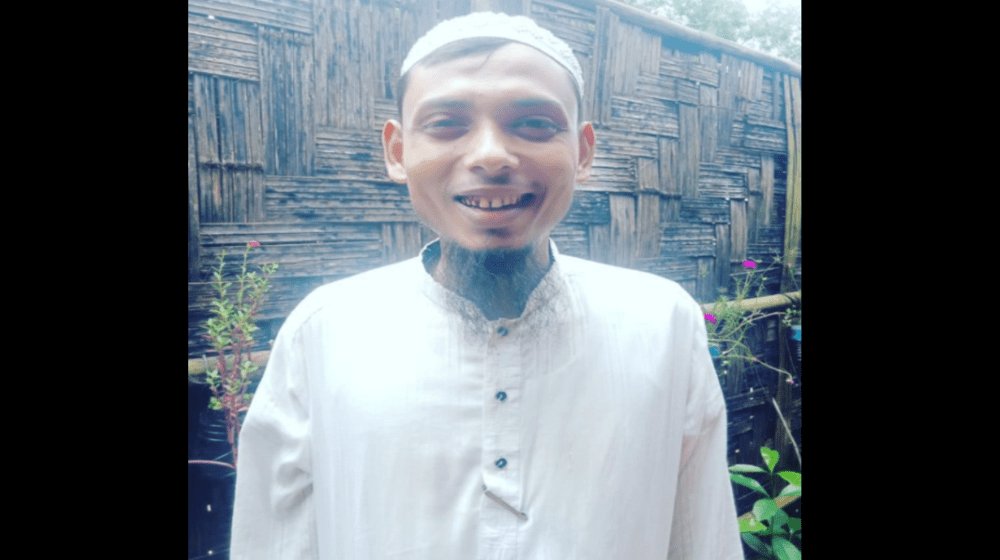Maulana Fazlur Rahman is a 29-year-old father residing in Block D of Camp 19. Originally from Mandu in the Rakhine State of Myanmar, he was forced to flee when Myanmar soldiers burned his house and tragically killed his father in front of him. After enduring a three-day journey in the rain without food and clean water, he found refuge in Bangladesh. For almost six years now, he has been living in the camp, fulfilling the role of an Imam, or religious leader.
Engaging in various meetings and workshops with NGOs, Maulana's curiosity led him to participate in UNFPA-supported sessions for male caregivers at the Adolescent and Youth Center. This experience marked the first time he openly discussed menstruation. Prior to this, he had considered it solely a girls' issue and had no interest in understanding it. "I realized menstruation is an extremely important issue for everyone. I learned about what girls use during menstruation, how long it lasts, the precautions they need to take, and how they feel during this time."
Addressing the social stigma surrounding menstruation is another crucial aspect. Some people still hold the belief that girls are impure during their period, leading to restrictions such as prohibiting them from cooking, excluding them from social gatherings, enforcing separate sleeping arrangements and even preventing them from visiting a doctor when unwell.
Upon returning home, Maulana shared his learning with his wife, who agreed that such misconceptions hinder the health and potential of girls and women. She affirmed that they should be able to engage in all usual activities. Learning about menstruation has transformed how he treats his wife: "Now I make sure to buy necessary items for her during her menstrual cycle and ensure her health and well-being during this time."
Previously, Maulana exercised strict control over his wife's behaviors, believing that her role should be confined to cooking and raising children. He felt it was within his rights to physically and emotionally punish her if/when she broke the “rule.” Following the sessions on gender equality, the “rule” is no longer in place. “I understand both husband and wife should mutually respect and listen to each other. Now I seek my wife's advice in every decision-making,” he said.
Maulana has observed broader changes in the community brought about by UNFPA's programme. Rohingya girls and women, who were once restricted from working outside their families, are now working in various places. “This is possible because men have become more aware,” he said.
He emphasized that gender equality and women’s access to income-generating opportunities are good for everybody. This realization led his wife to learn sewing so that she could teach other girls. “When a woman can financially support her family, it reduces violence within the family and promotes harmony. Children can have more nutritious food.”
Breaking free from his own misconceptions and driving changes within his family, he is taking an additional step; he often incorporates messages about gender equality and menstrual health management into his sermons as an Imam. He firmly believes that many families, like his own, can challenge harmful practices when they are better informed. "I believe that when men and women are treated equally, families and society will progress, and violence will be eradicated," he added.


